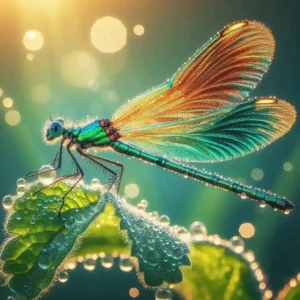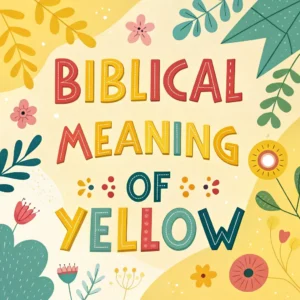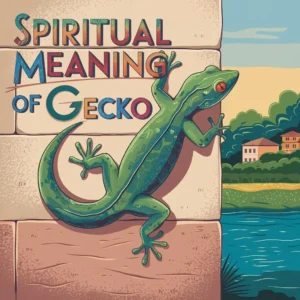As you explore the rich tapestry of Chinese culture, you'll inevitably encounter the majestic dragon, an iconic symbol that holds profound spiritual significance. This celestial guardian is believed to embody the harmony between heaven and earth, bridging the mortal world and the divine. But what exactly lies behind the dragon's mystical powers and its ability to attract wealth, abundance, and success? As you begin to unravel the threads of this ancient mythology, you'll discover a complex web of characteristics, elements, and connections that will leave you wondering: what secrets will the dragon reveal about the balance of the universe and your place within it?
In a Nutshell
- The Chinese dragon represents the harmonious balance between yin and yang, symbolizing the cyclical nature of life and death.
- As a symbol of good fortune, the benevolent dragon brings prosperity and harmony to those who honor it, reflecting its wisdom and kindness.
- The dragon's connection to the Five Elements influences its characteristics and spiritual significance, resonating with personal energy and spiritual journey.
- As a guardian of cosmic balance, the dragon guarantees that the forces of nature remain in equilibrium, maintaining order and stability in the universe.
- The dragon's presence is believed to attract wealth, abundance, and success, bringing joy and happiness to those who honor it, and reminding of the importance of living in harmony with nature.
Dragon Symbolism in Chinese Culture
As you explore into the rich tapestry of Chinese culture, the majestic dragon emerges as a ubiquitous symbol, embodying a complex array of virtues, from benevolence and wisdom to power and good fortune.
This revered creature is deeply ingrained in the nation's cultural significance, representing the harmonious balance between yin and yang, as well as the cyclical nature of life and death.
Historically, dragons have been depicted in various forms, from serpentine creatures to benevolent beasts, often with five claws, flamboyant whiskers, and a flattened head.
In ancient Chinese art, dragons are frequently paired with phoenixes, symbolizing the union of opposites and the pursuit of harmony.
Throughout Chinese history, dragons have been revered as symbols of imperial power, with emperors often claiming dragon ancestry to legitimize their rule.
As you venture further into the cultural significance of the dragon, you'll discover a rich tapestry of historical depictions, each revealing a unique aspect of this magnificent creature's enduring appeal.
Characteristics of the Benevolent Dragon
You'll find that the benevolent dragon, a paragon of virtue, embodies a distinct set of characteristics that have captivated the Chinese imagination for centuries.
This majestic creature is revered for its Dragon wisdom, which is rooted in its ability to balance power and compassion. As a symbol of good fortune, the benevolent dragon is said to bring prosperity and harmony to those who honor it.
The Dragon virtues of kindness, generosity, and wisdom are reflected in its gentle nature and wise decision-making.
Unlike its malevolent counterpart, the benevolent dragon is a guardian of justice, protecting the innocent and upholding moral principles. Its benevolence is also evident in its role as a teacher, guiding individuals on their spiritual journeys and imparting valuable life lessons.
As you explore further into the characteristics of the benevolent dragon, you'll discover a rich tapestry of virtues that make it a cherished symbol in Chinese culture.
Dragons and the Five Elements
In Chinese mythology, the dragon's majestic presence is intricately tied to the Five Elements, with each element – Wood, Fire, Earth, Metal, and Water – influencing the dragon's characteristics and spiritual significance in distinct ways.
You may find that the dragon's elemental associations resonate with your own personal energy and spiritual journey.
As you explore the dragon's connection to the Five Elements, you'll discover that each element imbues the dragon with unique qualities and attributes.
For instance, the Wood element is associated with growth, renewal, and expansion, while the Fire element represents passion, energy, and transformation.
The Earth element brings stability, grounding, and nourishment, whereas the Metal element symbolizes clarity, precision, and determination.
Finally, the Water element embodies fluidity, adaptability, and wisdom.
The dragon's elemental balance is a powerful reminder of the importance of harmonizing the Cosmic forces within yourself.
Connection to the Emperor's Power
Through its majestic presence, the Chinese dragon embodies the Emperor's power, commanding respect and awe as it channels the divine authority of the imperial throne. As you excavate into the symbolism of the dragon, you'll discover that it's intricately tied to the imperial authority and dynastic legacy of ancient China. The dragon's presence is a declaration to the Emperor's divine right to rule, and its power is often depicted as a manifestation of the Emperor's wisdom and benevolence.
The dragon's five claws symbolize the five virtues of Confucianism, which were highly valued by the Emperor and his court.
The dragon's scales are often depicted in five colors, representing the five elements and the harmony between the Emperor and the natural world.
The dragon's flamboyant whiskers are said to resemble the Emperor's beard, signifying the dragon's connection to the imperial throne.
The dragon's roar is likened to the Emperor's decrees, which were considered divine and unyielding.
The dragon's ability to control the weather and bring forth rain symbolizes the Emperor's power to bring forth prosperity and abundance to his people.
As you explore the symbolism of the Chinese dragon, you'll come to appreciate the intricate web of meanings that connect it to the Emperor's power and authority.
Harmony Between Heaven and Earth
As the Chinese dragon embodies the Emperor's power, it also serves as a potent symbol of the harmony between heaven and earth, reflecting the ancient Chinese worldview that the ruler's authority was sanctioned by the celestial domain.
In traditional Chinese philosophy, the dragon is believed to reside in the celestial sphere, serving as a bridge between the mortal world and the divine. As a celestial messenger, the dragon is thought to facilitate communication between heaven and earth, ensuring cosmic balance and harmony.
In this sense, the dragon's presence is a reminder of the interconnectedness of all things, emphasizing the need for balance and reciprocity between the natural and supernatural domains.
By embodying the harmony between heaven and earth, the dragon encourages you to cultivate a sense of unity and cooperation within yourself and with the world around you. This cosmic balance is essential for maintaining social order, ensuring the well-being of individuals, and fostering a sense of collective prosperity.
As you reflect on the Chinese dragon's symbolism, remember that harmony between heaven and earth isn't just a philosophical concept, but a lived experience that requires your active participation.
Mystical Powers and Abilities
As you plunge into the mystical domain of the Chinese dragon, you'll discover its extraordinary abilities and powers.
Five elemental forces – wood, fire, earth, metal, and water – are said to be harnessed by the Chinese dragon, granting it mastery over the fundamental building blocks of the universe.
With its mastery over the elements, the dragon can manipulate the forces of nature, summoning storms or calming turbulent seas.
As a Celestial guardian, it possesses the power to ward off evil spirits and malevolent energies, safeguarding the innocent and protecting the balance of the universe.
The dragon's magical abilities allow it to heal the sick, granting it the power to restore balance and harmony to the natural world.
With its wisdom and insight, the dragon can see into the hearts of those who seek its guidance, offering sage advice and counsel to those who seek it.
As a symbol of good fortune and prosperity, the dragon's presence is believed to attract wealth, abundance, and success, bringing joy and happiness to those who honor it.
Through its mystical powers and abilities, the Chinese dragon embodies the essence of dragon magic, inspiring awe and reverence in those who encounter it.
Role in Chinese Spirituality
Beyond its mystical powers, you'll find the Chinese dragon playing a profound role in Chinese spirituality, where it's revered as a potent symbol of auspiciousness, wisdom, and divine authority.
In this domain, the dragon embodies the harmony and balance that underlie the universe, reflecting the delicate interplay between yin and yang.
As a guardian of cosmic balance, the dragon guarantees that the forces of nature remain in equilibrium, thereby maintaining order and stability.
In ancestral worship, the dragon is often depicted as a benevolent deity, bestowing blessings and protection upon descendants.
Its presence is believed to ward off malevolent spirits and bring prosperity to families.
By honoring the dragon, Chinese people demonstrate their respect for their ancestors and the natural world, acknowledging the intricate web of relationships that bind them together.
Through its multifaceted role in Chinese spirituality, the dragon reminds you of the importance of living in harmony with nature and honoring the wisdom of the past.
Dragons in Daily Chinese Life
In daily Chinese life, you'll frequently encounter dragons adorning architectural landmarks, from majestic temple gates to humble family homes, serving as a constant reminder of the revered creature's significance in Chinese culture.
Dragons are woven into the fabric of daily life, symbolizing good fortune, prosperity, and cultural identity.
You'll find them embroidered on traditional clothing, such as cheongsam dresses and tangzhuang jackets. They're carved into wooden furniture and ornaments, adding an air of elegance and sophistication. They're depicted in vibrant colors on ceramic vases and plates, telling stories of myth and legend.
They're featured prominently in Dragon festivals, where they're celebrated with vibrant parades and lively performances. They're inlaid into intricate jewelry pieces, serving as a symbol of good luck and prosperity.
Through these various forms, dragons reinforce their role as a cultural icon, reminding you of the rich heritage and traditions that underpin Chinese society. As you navigate daily life in China, you'll come to appreciate the subtle yet pervasive presence of these majestic creatures, and the profound impact they've had on shaping cultural identity.
Frequently Asked Questions
Can Chinese Dragons Be Evil or Malevolent Spirits?
You might wonder, can dragons, those majestic creatures, harbor malevolent intentions? In dragon mythology, folklore adaptations often portray them as benevolent, but some tales hint at darker, more sinister aspects, leaving you to ponder the complexities of their nature.
Are Chinese Dragons Similar to Japanese or Korean Dragons?
You'll find that, despite similarities, Chinese dragons differ from Japanese and Korean counterparts due to cultural differences and distinct mythological origins, with unique characteristics shaped by each nation's historical and symbolic context.
Can Dragons Symbolize Good Luck in Western Cultures Too?
You'll find that, yes, dragons can symbolize good luck in Western cultures too, as cultural adaptations have led to their incorporation into Western symbolism, often representing power, prosperity, and benevolence.
Are Dragon Dances Only Performed During Chinese New Year?
You'll find that dragon dances, often featuring elaborate dragon costumes, are performed during various cultural festivals and celebrations, not just Chinese New Year, as they hold significant cultural significance and are an integral part of community traditions.
Can Anyone Keep a Dragon Figurine as a Good Luck Charm?
You might consider keeping a dragon figurine as a good luck charm, but first, verify you're not appropriating cultural symbols without understanding their significance, as dragon ownership can be a complex, nuanced issue in cultural exchange.

Hello, I’m Zephyra, your guide at SpiritualityEssence.com. I’m passionate about uncovering life’s mysteries and sharing transformative insights. Let’s explore mindfulness, ancient rituals, and the path to a more awakened life together. Join me on this spiritual journey!













